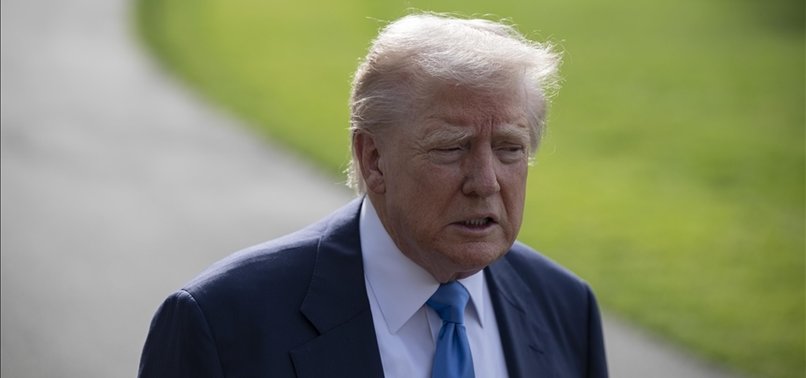US President Donald Trump‘s trade policies have reshaped global trade dynamics in the first 100 days of his second term, with aggressive tariffs on major partners causing rising tensions and uncertainty, according to economists and trade experts.
Trump, who took office for his second term on Jan. 20, will complete his first 100 days on Wednesday. In line with his “America First” campaign promises, he introduced a series of tariffs aimed at boosting domestic production. However, the measures have sparked severe repercussions in the global economy.
The president imposed tariffs on Canada, Mexico, China, and introduced sector-specific duties on steel, aluminum, and automobile imports starting Feb. 1. His most controversial move came on April 2, when he announced sweeping reciprocal tariffs ranging from 10% to 50% on all countries.
Tariffs on China reached 145%, and 245% for certain goods already subjected to previous levies.
Temporary exemptions were granted to products compliant with the US-Mexico-Canada Agreement (USMCA). Trump also introduced a 90-day tariff pause to encourage negotiations, though talks with China remain unresolved.
The administration claimed the policies protect American workers and industries. However, economists warned that the tariffs could drive up consumer costs, fuel inflation, and increase recession risks.
On Jan. 20, the White House ordered federal agencies to investigate unfair trade practices by April 1 and released a document outlining Trump’s trade policy priorities.
Starting Feb. 1, the president imposed 25% tariffs on Canadian and Mexican goods and 10% on Chinese imports, citing fentanyl trafficking and undocumented immigration. A 10% tariff was imposed on Canadian energy imports beginning Feb. 4, with warnings of potential increases in retaliation cases.
On Feb. 3, Trump announced that the 25% tariffs on Mexico and Canada could be suspended for a month if the two countries demonstrated commitments to border security. The 10% base rate tariffs on Chinese products took effect Feb. 4.
On Feb. 10, Trump imposed 25% tariffs on steel and aluminum imports from all countries, which became effective March 12.
On Feb. 13, he signed an executive order planning reciprocal tariffs, extending beyond import duties to include foreign subsidies.
The White House, on Feb. 21, directed the government to consider retaliatory measures and digital service taxes, while also limiting Chinese investment in technology, infrastructure, health, agriculture, energy, raw materials, and strategic sectors.
The Department of Commerce was tasked on Feb. 25 to investigate copper imports and ordered to launch a probe into lumber imports on March 1 to assess potential national security threats.
On March 4, the temporary suspension of tariffs on Canada and Mexico took effect. Two days later, Trump signed an order to exempt USMCA-compliant goods, particularly automobiles, from tariffs. He also reduced the tariff on Canadian potash, used by American farmers, to 10%.
The 25% steel and aluminum tariffs came into force on March 12.
On March 25, Trump announced 25% tariffs on countries importing Venezuelan oil and gas, effective April 2 — known as “Liberation Day” — in response to allegations that Venezuela was sending criminals into the United States. A second round of tariffs was threatened.
On March 26, the US announced 25% tariffs on imported automobiles, light commercial vehicles, and essential auto parts, effective April 3.
On April 2, Trump unveiled the sweeping reciprocal tariffs plan, with base 10% tariffs starting April 5 and broader tariffs effective April 9.
In response, China imposed 34% retaliatory tariffs on US goods on April 8. The United States responded by increasing tariffs on Chinese products by an additional 50%, effective April 9.
On April 9, Trump announced a 90-day pause on the newly announced tariffs, except China, where tariffs were raised to 125%, bringing the total rate to 145%.
On April 11, the Trump administration exempted certain technology products such as smartphones, computers, chips, and solar panels from reciprocal tariffs.
On April 14, the US launched investigations into the national security risks of imported semiconductors, chipmaking equipment, and trafficked drugs.
The next day, Trump ordered an investigation into the import and processing of rare earth elements, citing national security concerns.
On April 17, the US Trade Representative announced plans to impose fees on Chinese-owned shipowners and operators based on net tonnage or container count, with a phased implementation over 180 days.
On April 22, the administration launched a probe into the impact of medium- and heavy-duty truck imports and their components on national security.


